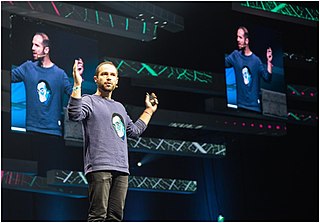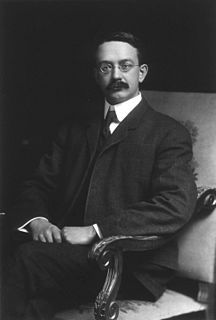A Quote by Mao Zedong
Investigation may be likened to the long months of pregnancy, and solving a problem to the day of birth. To investigate a problem is, indeed, to solve it.
Related Quotes
Solving the population problem is not going to solve the problems of racism, of sexism, of religious intolerance, of war, of gross economic inequality. But if you don't solve the population problem, you're not going to solve any of those problems. Whatever problem you're interested in, you're not going to solve it unless you also solve the population problem. Whatever your cause, it's a lost cause without population control.
Heredity is to-day the central problem of biology. This problem may be approached from many sides - that of the breeder, the experimenter, the statistician, the physiologist, the embryologist, the cytologist - but the mechanism of heredity can be studied best by the investigation of the germ cells and their development.
Cities are never random. No matter how chaotic they might seem, everything about them grows out of a need to solve a problem. In fact, a city is nothing more than a solution to a problem, that in turn creates more problems that need more solutions, until towers rise, roads widen, bridges are built, and millions of people are caught up in a mad race to feed the problem-solving, problem-creating frenzy.
I never really liked weightlifting because there is no problem solving, whereas when I am fighting, I am trying to solve a problem, so I don't think about being tired. I box, wrestle, do jujitsu, run up sand dunes; every single day is something different so that I am mentally engaged. That's what makes me want to train longer.
We're primarily interested in solving the problem of 20 million black people. And if integration is going to solve the problem tomorrow, then let's integrate. But since the Supreme Court issued its desegregation decision seven years ago, and you only have about six or seven percent integration now, on an educational level, that means that the black man trying to use integration as a means of solving his problem will be another 100 years just getting integration on an educational level.






































